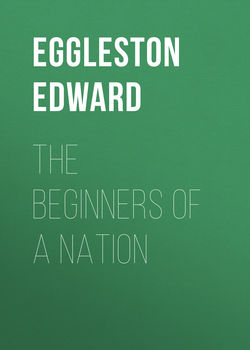Читать книгу The Beginners of a Nation - Eggleston Edward - Страница 42
BOOK II.
THE PURITAN MIGRATION
CHAPTER THE FIRST.
RISE AND DEVELOPMENT OF PURITANISM
IV
ОглавлениеThe Puritan debate. The theological debates that fill so large a place in the history of the first half of the sixteenth century in Europe were mainly concerned with speculative dogmas. However futile controversies may seem that seek to reduce to formulas the relations between God and man, they have at least a topical dignity. But the debates about ceremonies and vestments which the exiles brought back to England from the Continent, and which held first place there during the reign of Elizabeth and James, were bitter without being serious. A life-and-death struggle concerning the wearing of "white surplices" or the making of the sign of the cross in baptism can not but seem frivolous to the modern mind. Certayne Qvestions concerning silk or vvool in the high priest's ephod, 1605. Learned scholars like Broughton and Ainsworth thought it not beneath them to write tractates discussing the material of which the ephod of a Jewish high priest was made. It was learnedly demonstrated that the ephod was of silk, and there were sober essays on the linsey-woolsey side of that controversy. To the fine-spun mind of that time the character of the Jewish ephod was thought to settle the propriety of the Christian surplice. To the modern reader the whole debate about vestments and liturgies would be amusing if it were not so tedious. It is necessary to steady one's judgment of that age by remembering that deeper things sometimes lay concealed under these disputes regarding the contemptible mint and cumin of ecclesiasticism. Puritanism at its rise was an effort to escape from formalism, the outgrowth of an aspiration for greater spirituality in worship; but it gradually passed into an opposite formalism as rigid as that from which it had escaped.
Uniformity not possible. It was in vain that Elizabeth tried to compel uniformity. The difference between the radical and the conservative is constitutional, and is manifest in every period of agitation. Neither the mediation of moderate men nor the compulsion of authority can bring these two sempiternal divisions of the human race into agreement. The conservative English churchman limited his Protestantism to the rejection of the pope's authority, and to certain moderate reforms in church government and ritual. He shuddered with alarm at every proposal to reconstruct religious institutions which were moss-grown with ancient sentiment. The extreme Puritan, on the other hand, went about his work in the spirit of a Jehu. He saved all his reverence for the precepts of the Bible, now becoming common in the vulgar tongue. He applied biblical phraseology to the affairs of life in a way that would have been impossible had he possessed any sense of humor. He felt himself impelled by the call of God to carry out in England the changes that had taken place in the Calvinistic churches of the Continent, and to go even further. He would have no surplices, no sign of the cross, no liturgy, no church holy days. Away with these rags of Antichrist, was his cry. Let us get back to the simplicity of the primitive ages. The Anglican, on the other hand, felt himself an Englishman above all, and without a stately liturgy, great bishops in square caps and lawn sleeves, Christmas feasts, solemn Good Fridays, and joyous Easters, there would have remained for him no merry England.
